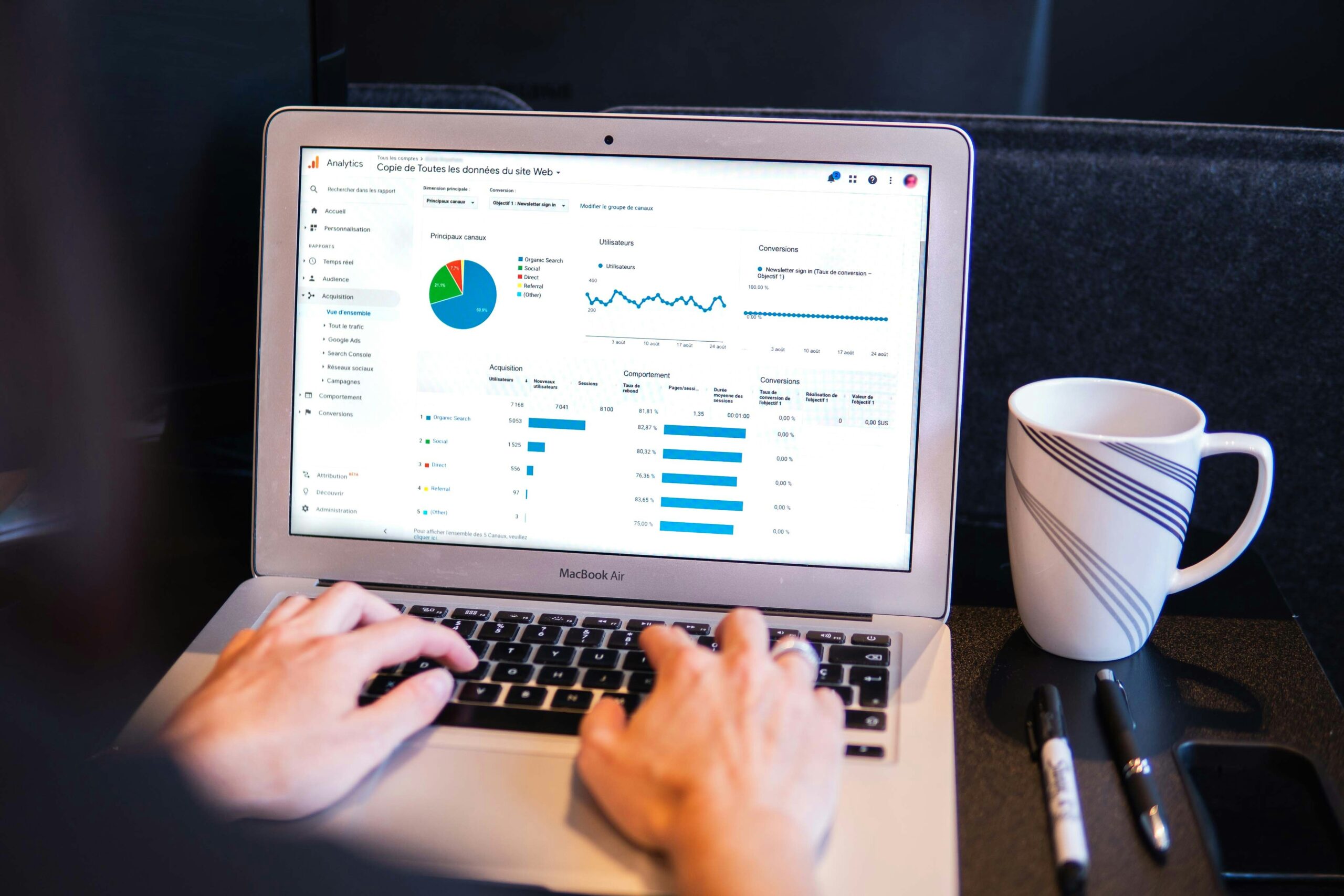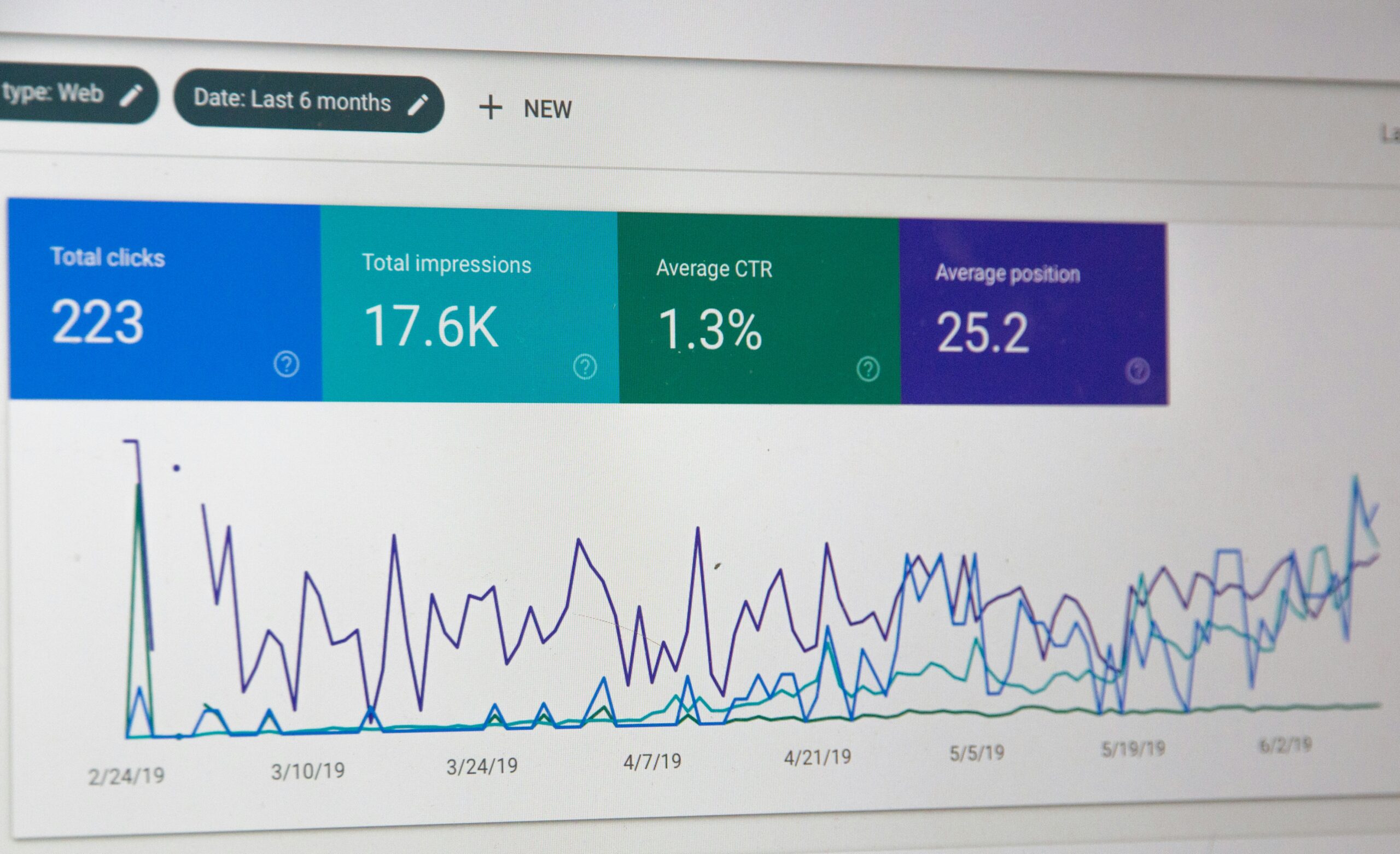In today’s saturated digital marketplace, success in eCommerce goes far beyond launching a website—it demands visibility, trust, and precision-driven strategies. Search engine optimization (SEO) lays the foundation for sustainable growth by helping online stores show up where it matters most: in front of shoppers already searching for what they sell. At Day by Day Digital, we specialize in building SEO frameworks that align product visibility with buyer intent, reduce reliance on paid ads, and generate long-term returns. This blog explores how modern SEO practices—from keyword mapping to technical optimization—can transform eCommerce performance at every level.
Key Takeaways
- SEO connects your eCommerce site with high-intent shoppers through relevant keywords, optimized content, and strong search presence.
- Reducing reliance on paid ads via organic visibility leads to sustainable traffic, stronger ROI, and long-term marketing efficiency.
- Product listings optimized with strategic keywords, visuals, and schema markup significantly boost engagement and click-through rates.
- Technical SEO elements like mobile compatibility, secure architecture, and fast page loads form the backbone of digital growth.
- Tracking performance metrics such as keyword rankings and user behavior enables smarter refinements and results-driven marketing decisions.
Why SEO Is the Foundation of eCommerce Growth

Search engine optimization plays a central role in long-term digital success by driving organic visibility and building brand authority. At Day by Day Digital, we specialize in crafting SEO strategies that fuel sustainable eCommerce growth by aligning your digital presence with how buyers actually search.
Unlike paid ads, SEO nurtures a consistent traffic flow by aligning content with search intent. A properly optimized eCommerce website captures high-converting users without exhausting ad budgets. By targeting intent-driven queries, businesses increase their visibility across buyer journeys. This builds trust, boosts conversions, and delivers sustainable return on investment over time.
Attracting High-Intent Shoppers With Search Visibility
SEO helps connect with shoppers already searching for what you offer. By targeting commercial and transactional keywords, eCommerce businesses can capture users who are ready to convert. These high-intent shoppers are more likely to take action, making organic traffic a valuable acquisition source. A search-optimized website positions your products where it matters most—in front of users who are already comparing options and weighing purchase decisions. This relevance increases engagement and sales potential without extra ad spend.
Reducing Paid Ad Dependency Through Organic Reach
Relying only on paid advertising drains budget and limits growth potential. SEO offers a cost-effective alternative by consistently attracting users through search engine results. Once rankings are secured, your site continues gaining exposure with minimal ongoing expense. Unlike ads that stop when the budget ends, organic results persist and grow over time. With a strong search engine optimization strategy in place, online retailers unlock more sustainable digital marketing performance and long-term return on investment—an approach Day by Day Digital uses to help brands grow visibility without exhausting ad budgets.
Building Credibility and Conversions With Search Presence
High-ranking websites often gain credibility in users’ eyes, making search engine optimization a trust-building tool. Appearing on the first page signals authority, encouraging clicks and confidence. The more consistently your store shows up for relevant queries, the more your brand becomes associated with value and reliability. This trust factor plays a critical role in converting visitors into customers. A strategic SEO plan amplifies digital marketing results by turning search visibility into measurable revenue.
Core SEO Techniques That Power Organic Performance

Effective eCommerce SEO relies on foundational techniques that make your store more discoverable, indexable, and engaging. These include keyword research, content optimization, and link building—all essential to improving visibility and relevance. By refining site structure and aligning messaging with search queries, businesses create a smoother customer journey. These practices support both search engine rankings and the overall user experience. The result is stronger engagement, better positioning, and sustained organic traffic growth.
Mapping Keywords to Products for Smarter Discovery
Identifying and applying the right keywords allows eCommerce stores to reach buyers during product searches. Research helps uncover search volume, intent, and gaps in competitor visibility. Matching keywords to specific products boosts relevance and user engagement. Well-researched terms enhance product titles, descriptions, and category pages to improve performance. Keyword mapping strengthens both search engine optimization and digital marketing strategies by aligning website content with what buyers are actually seeking.
Improving Site Architecture for Better Indexing
A clean and intuitive site structure allows search engines to crawl and index pages more efficiently. Clear categories, internal linking, and simplified navigation contribute to stronger visibility. Users also benefit from easy exploration, making it more likely they’ll browse multiple products. An organized architecture supports higher rankings by distributing authority and relevance across key pages. When structure and SEO work together, websites become easier to find, understand, and convert from.
Strengthening Authority With Strategic Link Building
Backlinks from relevant, trustworthy sources enhance your store’s authority in the eyes of search engines. Building partnerships, publishing guest posts, and earning citations from content marketing help you secure high-quality links. Each link serves as a signal of credibility and relevance, increasing your chances of ranking well. Effective link building improves domain authority, supports digital visibility, and elevates organic performance. Combined with keyword strategy, it completes a powerful optimization framework.
Enhancing Product Listings to Maximize Organic Traffic

Product listings are vital SEO touchpoints that directly influence search performance and user decisions. Optimizing titles, descriptions, and media ensures your content is relevant and engaging. Structured listings with targeted keywords attract qualified traffic and improve click-through rates from search results. These listings must also enhance user experience by clearly conveying value and features. The goal is to convert visibility into action through clarity, consistency, and conversion-driven messaging.
Crafting SEO-Friendly Product Titles and Descriptions
Every product title and description should align with how users search for items online. Strategic use of keywords in natural, persuasive language increases visibility while maintaining a smooth user experience. Highlighting product benefits, variations, and intended uses creates relevance for both shoppers and search engines. These descriptions should avoid keyword stuffing but clearly communicate value. Consistent, optimized language across listings boosts search engine optimization while building confidence in the buyer’s journey.
Incorporating Visual Content With Optimized Metadata
High-quality visuals strengthen engagement and impact SEO when properly tagged. Including alt text with relevant keywords helps search engines understand image content and improves accessibility. Visuals should support product understanding by showing different angles, features, and use scenarios. Videos or 360-degree views provide additional context and reduce return rates. Optimizing media isn’t just about aesthetics—it enhances search performance and contributes to better digital marketing outcomes across platforms.
Using Schema Markup for Greater Search Exposure
Structured data like product schema gives search engines clear signals about your product content. When applied correctly, it enables rich snippets that display price, reviews, and stock directly in search results. This additional visibility boosts click-through rates by offering more information before users even visit your site. Schema markup also strengthens your overall SEO strategy by improving how search engines interpret and rank your listings. It’s a crucial element of a performance-focused digital marketing framework.
Strengthening Technical SEO for Sustainable Organic Growth

Technical SEO lays the groundwork for all other search engine optimization efforts. It ensures that your ecommerce website is accessible, crawlable, and secure—directly impacting organic visibility. By addressing backend elements like page speed, mobile responsiveness, and indexing structures, you improve user experience and make it easier for search engines to rank your site. These enhancements reduce bounce rates and improve session durations, contributing to long-term digital marketing success and return on investment.
Ensuring Mobile Compatibility Across the Website
Mobile-friendly design is a critical part of technical SEO. Your website must adapt seamlessly to various screen sizes without compromising usability or design. Features like responsive layouts, legible fonts, and clickable buttons improve engagement on mobile devices. Mobile optimization is favored by search engines and influences rankings directly. This compatibility supports a smoother customer journey, enhances user satisfaction, and encourages repeat visits—essential for driving growth and maximizing return on investment.
Boosting Page Load Speed With Efficient Performance Tactics
Slow-loading websites frustrate users and signal poor quality to search engines. Improving load times through compressed images, optimized code, and caching techniques boosts performance and user retention. Search engines prioritize speed in their ranking algorithms, making it a vital SEO factor. Efficient load times enhance digital marketing efforts by keeping users engaged longer. A fast site not only improves search visibility but also contributes to better sales outcomes by reducing abandonment.
Implementing Secure, Crawlable Site Architecture
Secure site architecture builds user trust and facilitates smooth search engine crawling. Using HTTPS encryption, structured internal links, and logical content hierarchies ensures your pages are easily indexed. This approach helps prevent crawl errors and strengthens your site’s presence in search engine results. A clean and secure backend supports all on-page optimization strategies and boosts domain credibility. It’s a foundational element of digital growth, ensuring your investment in SEO yields lasting results.
Analyzing SEO Impact Through Strategic Performance Tracking

To ensure your optimization efforts are delivering results, regular analysis of key SEO metrics is essential. Tracking the relationship between search engine visibility, user engagement, and conversion performance allows businesses to make informed improvements. This data-driven approach aligns SEO with broader digital marketing goals, helping identify high-impact areas. Monitoring performance not only reveals strengths and weaknesses but also guides strategic adjustments that sustain long-term growth and return on investment.
Monitoring Organic Traffic and Keyword Positioning Trends
Keeping an eye on organic sessions and keyword rankings shows how well your SEO strategies are performing. These indicators reveal which keywords are driving traffic and whether your content is aligned with user intent. Consistent ranking improvements suggest strong content alignment and technical health. Understanding keyword performance also informs future campaigns and helps refine your digital marketing approach. Tracking these trends ensures your efforts are focused on high-ROI opportunities.
Conducting SEO Audits to Resolve Performance Barriers
Routine SEO audits uncover technical errors and content issues that may hinder your site’s success. By checking for broken links, missing tags, or duplicate content, you maintain a search engine–friendly site structure. These audits help prioritize fixes that directly improve rankings and user experience. Removing roadblocks ensures that your website remains optimized, accessible, and relevant. SEO audits are vital checkpoints in your digital strategy and essential for ongoing optimization.
Aligning SEO Metrics With Revenue and Engagement Goals
Tracking metrics like bounce rate, conversion rate, and session duration helps link SEO performance to business outcomes. These insights clarify which pages are driving sales and which need refinement. When SEO data is connected to revenue, you can better allocate resources and measure success accurately. This alignment transforms raw traffic data into actionable strategy. Integrating SEO with business goals ensures your marketing investments lead to meaningful, measurable returns.
Frequently Asked Questions
How does SEO improve the visibility of an eCommerce website?
SEO boosts visibility by helping your site show up when people search for products you offer. Through keyword optimization, fast-loading pages, clean site structure, and strong on-page content, Day by Day Digital ensures your store ranks higher on search engines and reaches the right audience.
What are some key benefits of using SEO for online retailers?
SEO offers online retailers a cost-effective way to attract targeted traffic, build brand credibility, and improve user experience.By focusing on organic search strategies, you can reduce reliance on paid advertising, leading to sustainable growth and a higher return on investment over time.
Why is mobile-friendliness crucial for eCommerce SEO?
With the increasing number of consumers shopping via mobile devices, having a mobile-friendly website is essential. Day by Day Digital ensures your eCommerce site is responsive and provides a seamless user experience across all devices, which not only satisfies users but also aligns with search engine ranking factors.
What role does keyword research play in SEO?
Keyword research is fundamental to connecting with your target audience. At Day by Day Digital, we identify the terms and phrases your potential customers use when searching for products or services. By integrating these keywords strategically into your website content, we enhance your site’s relevance and visibility in search results.
How do technical SEO practices contribute to overall site performance?
Technical SEO ensures your website is structured for optimal visibility and performance in search engines. At Day by Day Digital, we focus on critical elements like page speed, secure HTTPS connections, mobile responsiveness, and XML sitemaps to enhance both user experience and search engine indexing. We also specialize in optimizing your Google Business Profile, including map pack placements, which boost local search visibility and help your business stand out in high-intent searches!
Conclusion
SEO isn’t just a checkbox for eCommerce success—it’s the engine that powers long-term growth, user trust, and digital visibility. By investing in a strategy that combines technical precision, optimized product listings, and performance tracking, online retailers position themselves for sustained wins across search engines and customer touchpoints. At Day by Day Digital, we’re committed to turning that strategy into action—so your brand doesn’t just compete, it dominates.
